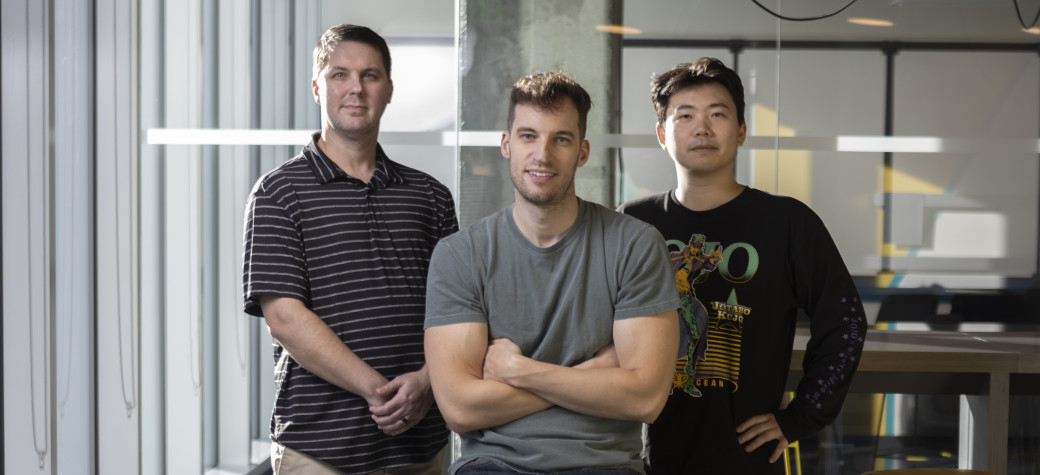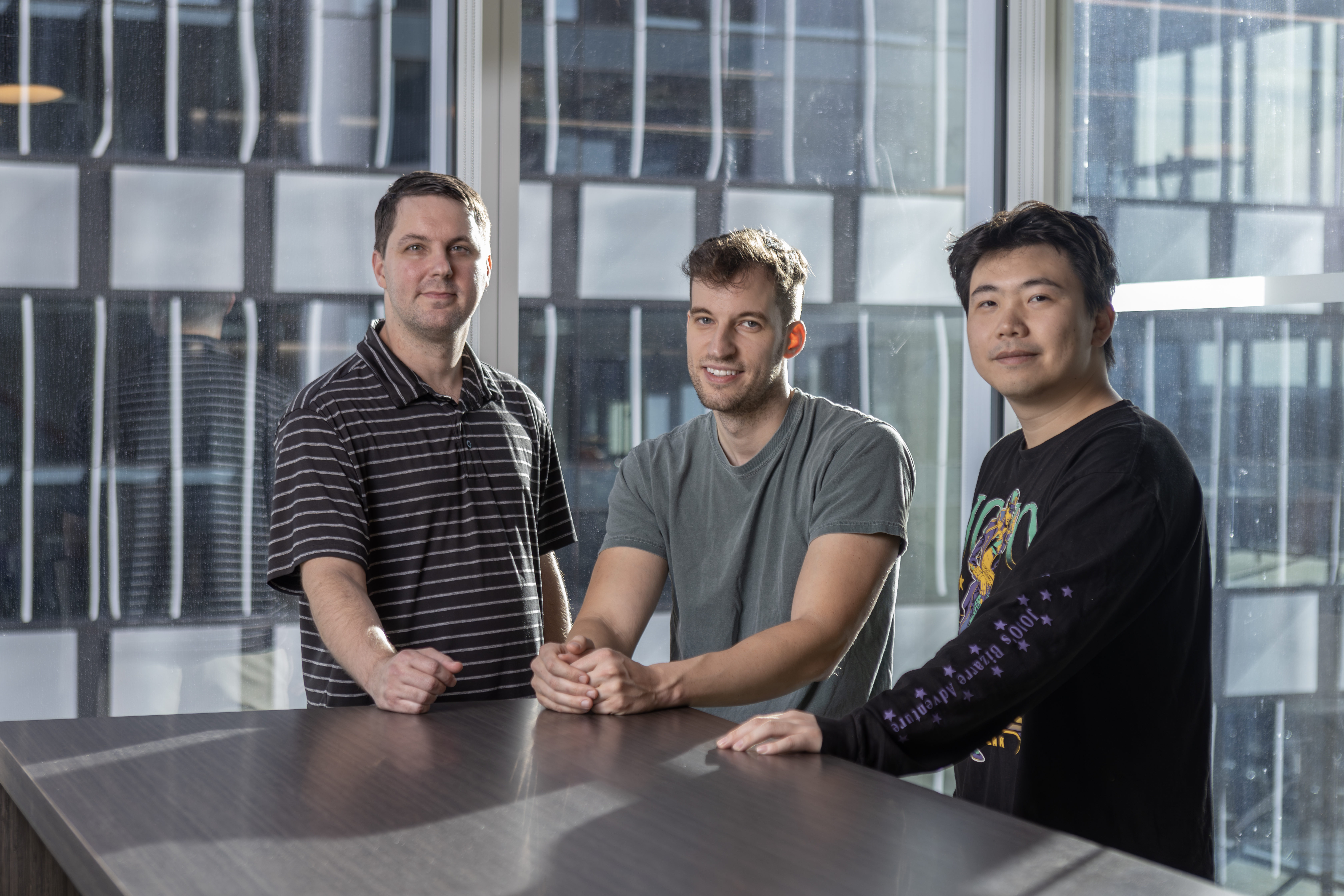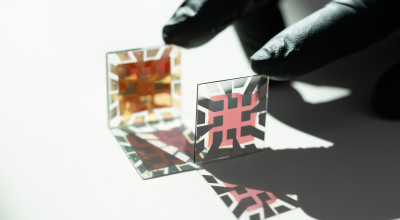
While quantum computing is still in its early stages, it has the power to unlock unprecedented speed and efficiency in solving complex computational fluid dynamics (CFD) problems that could revolutionize several industries, including the defense space.
The Georgia Tech Research Institute (GTRI) and Georgia Institute of Technology (Georgia Tech) are exploring how the powerful processing capabilities of quantum computers can expedite CFD’s resource-intensive simulations used in aircraft design, weather prediction, nuclear weapons testing and more.
“Through a collaboration between GTRI and Georgia Tech, we are developing an application of quantum computing to solve proof-of-principle problems in computational fluid dynamics that could streamline efficiencies and reduce costs across numerous industries,” said Bryan Gard, a GTRI senior research scientist who is leading this project.
Quantum computing offers a new way of doing computations using the principles of quantum mechanics, a science that explores the behavior of tiny particles such as atoms and photons. Computers and software that are built on the theories of quantum mechanics can process a large amount of information simultaneously and much faster than classical computers. That is because unlike classical computers, which use bits that are either 0 or 1, quantum computers use quantum bits or qubits.

Classical bits are similar to regular on/off switches, which can only exist in one state at a time. Qubits, meanwhile, can exist in multiple states at once thanks to a property in quantum mechanics known as superposition.
Because CFD involves complex simulations of how fluids, such as air or water, move and interact with different surfaces, classical computers often struggle with the immense number of calculations needed for such detailed simulations. The ability for quantum computers to process information in parallel could significantly speed up these simulations and produce more accurate results.
“Say you are examining how air flows over a plane wing and you want to identify the large- and small-scale dynamics of that interaction,” explained Gard. “This type of problem would be very hard for a classical computer to handle because it wouldn’t be able to examine those large- and small-scale aspects simultaneously.”
The team has split its research into two parts. The parts that involve linear differential equations are solved on a quantum computer and the other, non-linear parts are handled conventionally on a classical machine.
The reason for this division is that as the problem scales up on classical supercomputers, the communication between nodes becomes inefficient, creating a bottleneck. Even though quantum computers are not yet large-scale, they can handle certain parts of the problem without facing the same communication challenges, Gard explained.
These principles could help organizations strategically allocate resources and avoid costs associated with manufacturing and testing potentially flawed designs. In the defense realm, an example of this can be seen with designing aircraft.
Instead of the conventional methods of building and testing structures in a wind tunnel, quantum-enhanced CFD would allow engineers to analyze stresses, assess designs and predict performance more efficiently and cost effectively. This becomes particularly relevant at high speeds, where factors such as air flows and turbulence pose additional challenges for running accurate simulations.

“It all comes down to money, as with everything else,” said Gard. “If you could save yourself a lot of time and money by running this simulation, which you couldn't do before, then it would allow you to allocate your resources more effectively.”
For this project, GTRI is collaborating with Spencer Bryngelson, an assistant professor in the School of Computational Science and Engineering who has expertise in computational physics, numerical methods, fluid dynamics and high-performance computing. Zhixin Song, a graduate student at Georgia Tech who is researching quantum algorithms for CFD, has also contributed.
“This project is particularly interesting because although it is challenging, it could have outsize performance gains if one can find the right tools for the job, meaning the right quantum algorithm to solve the right fluid dynamics problem,” Bryngelson said. “GTRI and Georgia Tech have already made progress in this area, and also work well together, so it has been a good experience.”
The project has been supported by GTRI’s Independent Research and Development (IRAD) Program, winning an IRAD of the Year award in fiscal year 2023, and the Defense Advanced Research Projects Agency (DARPA).
GTRI’s Independent Research and Development (IRAD) Program funds discretionary research across the Georgia Tech enterprise that addresses some of the most pressing challenges in national security, economic development, and the overall human condition. These projects extend GTRI’s research base, sustain capability in critical research areas, foster exploration and innovation, and accelerate entry into emerging areas of interest to GTRI and our sponsors. The IRAD Program prioritizes research investments that further its five Strategic Pursuits:
• Trusted artificial intelligence for national security
• Trusted and resilient cyber-physical systems
• Agile, evolving electromagnetic spectrum operations
• Decision superiority at the contested edge
• GTRI innovations impacting Georgia
These Strategic Pursuits represent research thrusts that integrate across GTRI’s technical core competencies to expand our thought leadership and develop impactful solutions for GTRI’s sponsors. Additionally, in alignment with GTRI’s vision to be a leading university-affiliated research institute, the IRAD Program benefits greatly from GTRI’s interdisciplinary collaboration with Georgia Tech. By combining the basic research excellence across the academic colleges at Georgia Tech and GTRI’s applied research expertise, we are able to develop better solutions for our key stakeholders.
GTRI’s IRAD Program also invests in developing the next generation of applied researchers. Graduate student fellowships and undergraduate internship programs connect students to GTRI’s research mission. GTRI’s early-career researcher program, known as HIVES, fosters innovation and provides mentorship for junior researchers. IRAD projects also enable collaborative research with historically black colleges and universities (HBCUs) and minority-serving institutions (MSIs). For FY23, GTRI invested $21 million into its IRAD portfolio, funding more than 250 projects.
Writer: Anna Akins
Photos: Christopher Moore
Art Credit: Img2Go.com, Adobe
GTRI Communications
Georgia Tech Research Institute
Atlanta, Georgia

The Georgia Tech Research Institute (GTRI) is the nonprofit, applied research division of the Georgia Institute of Technology (Georgia Tech). Founded in 1934 as the Engineering Experiment Station, GTRI has grown to more than 2,900 employees, supporting eight laboratories in over 20 locations around the country and performing more than $940 million of problem-solving research annually for government and industry. GTRI's renowned researchers combine science, engineering, economics, policy, and technical expertise to solve complex problems for the U.S. federal government, state, and industry.



